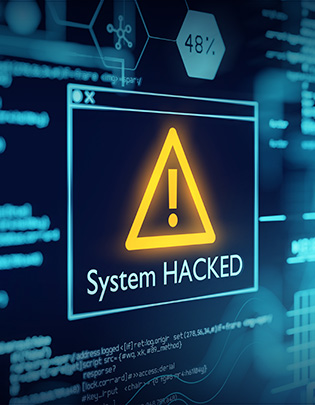In the not too distant past, traditional work offices and co-working spaces were the norm, along with daily commutes to and from the office, and the typical 9-5 workday. In a matter of a few months, thanks to COVID-19, all this normal has drastically changed, sending millions of people to work from home every day of the week and ushering in a type of new normal.
As if that is not difficult enough, if cybercrime was bad before, it is even more evident and visible now. In fact, in the 2020 Phishing Attack Landscape Report, 53% of those surveyed said that they had seen a drastic increase in the quantity of phishing attacks and success of the attacks since the start of the pandemic.
Many organization’s business continuity planning now includes ways to not only protect the organization in these times, but also to protect remote working employees and the multiple accesses they have to company information. There are a lot of improvements that can be made at an organizational level to improve network access and infrastructure, but even with that, end users are a critical component to securing your organization.
As it turns out, you can be an asset or a liability in terms of security for your organization. Given these circumstances that many of us find ourselves in, we want to share some ways you can ensure your work from home space is secure.
1. Secure the router and internet access at home
Many people don’t even think to change the default passwords to home routers and WiFi. This leaves a home network even more vulnerable to attack. Take time to change your passwords that allow you to connect to your router and get online.
2. Update your computer software
New attacks are happening every single day and if you are operating on old or outdated software, you could be putting your computer in danger. Unsupported software or versions are often no longer supported by security updates. Be sure to pay attention to “software update” notifications and/or check your computer’s operating system for information.
3. Keep your professional and personal devices separate
Just like you would a business and personal bank account, keeping your devices, phones, tablets, and laptops that you may use for work separate can help to reduce any confidential or sensitive data from being exposed. It can be easier said than done, but it is helpful if you set boundaries like this.
4. Lock screens if you are away
If you walk away from your device especially for an extended period, make sure you lock the screens. This can be easy to forget but you can also configure automatic locking so after a certain time period, your screen will auto-lock for you. Most modern devices have this functionality.
5. Implement a password manager
Having a password manager such as LastPass or Zoho Vault can not only help in that you don’t have to remember your password but it will also help you to set a strong password that won’t be easy to guess. Most password managers will allow you to store more than passwords and make room for credit card details and secure notes and files.
6. Enable multi-factor authentication or use an authenticator app
Multi-factor authentication is a method by which you must present two additional pieces of evidence that you are who you say you are. This verification is based on SMS messaging or Face ID among other things. Some applications ask you to use an authenticator app which contains changing six-digit codes you can use.
7. Secure your home office
Ensuring your computer and network are secure is one thing, but it is also important to consider securing your physical home office. If you work in a room in your house, outside in the back yard, on a second or third floor balcony, or at the kitchen table, be sure to lock up the office just like you would your home.
8. Be wary of phishing or otherwise suspicious emails
There are many emails going around impersonating major brands or attempting to capitalize on human fear and other emotions. Scan emails carefully. Check the sender details and make sure the emails are coming from a legitimate source and a source you know. Do not open attachments or click on links unless you know who it is coming from.
9. Be careful using social media
Things you would not normally post during work hours, don’t post just because you are working at home. Criminals and hackers love to use scams, misinformation, disinformation, and other channels including vulnerable ones like Facebook and Instagram to lure their victims.
10. Know your company’s IT or security department
When in doubt, be sure to ask those in your company who are particularly skilled at technology, networks, and security. Check with them before installing updates or adding additional protection to your computer including adding storage and backing up files. Understand the processes and policies they have and ask questions when things are not clear.
Working from home is a major adjustment for many and while it can be uncomfortable, exhausting or lonely at times, ensuring you have the best security possible can help to make sure you and your organization stays safe from phishing or other attacks.




